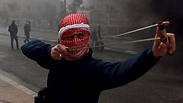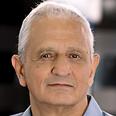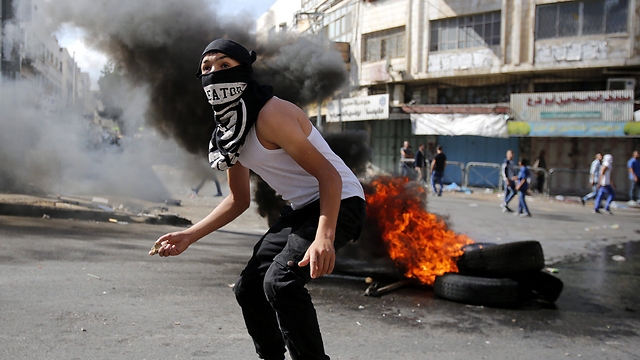Riad Mahmoud Al-Masalma, 36, who murdered two Jews at the Panorama building in south Tel Aviv, was one of the lucky Palestinians who received a permit to work in Israel. In his interrogation, he said that when he left his home in Dura, he did not plan on killing anyone. The decision was made while he was at work at a Tel Aviv restaurant, and spotted a suitable knife. The availability of the knife preceded the murder plot.
All of Israel's security branches have been trying to understand the current ongoing wave of terror attacks since August. Where is this coming from, the experts wonder, and more importantly - where is it heading?
On Friday, November 13, a father and son were murdered near Otniel - Yaakov and Netanel Litman. That night, ISIS launched its attack on Paris. In the days that followed, there were no notable terror attacks in Israel and the IDF was hoping that, this was it, this wave of violence was coming to an end. Five days later, the terror attacks came back with vengeance.
The first intifada started as a popular uprising: The masses went out to the streets. The second intifada was a move initiated by the Palestinian leadership, the Fatah movement and its military wing, Tanzim.
The third intifada is, at the moment, neither one nor the other: The masses are staying at home, and Tanzim is holding its fire. There are no bomb-making workshops to raid, no command centers to bomb, no Palestinian leadership to punish with new settlements. "A limited uprising," as a senior IDF officer defined it this week. Not a particularly good definition, but the insinuation behind it is interesting: If this is an uprising, not a wave that would pass, the defense establishment can no longer turn a blind eye. It must do something.
The IDF officer proposed a series of measures that could help alleviate the tensions on the Palestinian side: Give them more entry permits, lift some of the restrictions on movement, release prisoners. These steps are completely against the dominating rhetoric in the government. The ministers are preaching for a firm hand, while the officers in the field are preaching for a generous one. The result is paralysis.
The common denominator among all attackers is the despair they feel. They despair of everyone: Israel, the Palestinian Authority and its leader, Mahmoud Abbas, and all of the Palestinian factions. One of the terrorists wrote a suicide note before embarking on his mission, in which he turns to Hamas and says: "Don't dare claim responsibility over the terror attack I commit, I despise you."
Israel views this as a plague, an epidemic. The daily terror, the spontaneous terror, will last for a long time. Every attack gives rise to the next one. The dynamics are much stronger than any rational reasoning.
On the political aspect, there is a common belief that this is the end of the Abbas era. Even if he takes back his resignation and continues sitting in the Mukataa in Ramallah, it would not be the same Abbas. Right now he's still in control of the PA. He is preventing the spillover of terrorism, but his control of what's happening is becoming weaker by the day. The most popular politicians today both in the Gaza Strip and the West Bank, is Akram Haniyeh, a Hamas leader.



















